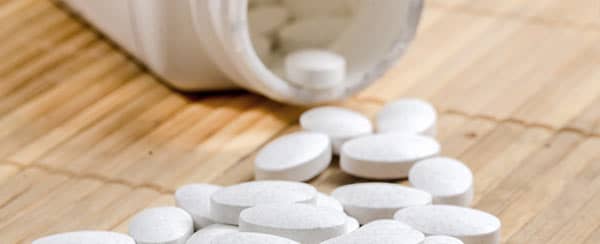Benicar lawsuits were filed as a result of drug-associated severe, life-threatening side effects like sprue-like enteropathy, colitis, and other gastrointestinal problems. In 2017, at least 97% of claimants opted into a $358 million Benicar lawsuit settlement offered by Daiichi Sankyo, Inc.
Read About Blood Pressure Drug Lawsuits Sartan RecallsBenicar Settlement
On August 1, 2017, Daiichi Sankyo agreed to pay $300 million to settle all outstanding cases if at least 95% of all claimants opted in. The amount was later increased in May 2018 to $358 million after 97% of claimants opted in, accounting for more than 2,230 of the 2,300 cases that were part of the multidistrict litigation.
Although the Japanese pharmaceutical company settled, Daichii Sankyo did not admit liability, issuing the following statement: "We believe a settlement is in the best interest of all, and will allow us to continue our focus on bringing to market innovative medicines that help people live healthy and meaningful lives."
Department of Justice Investigation and Settlement
In 2015, Daichii Sankyo paid $40 million to the U.S. Department of Justice to settle an allegation that it had made illegal payments to doctors in return for prescribing Benicar and other drugs to their patients from 2005 through 2011.
Why People Were Filing Benicar Lawsuits
Benicar is an angiotensin II receptor blocker (ARB) used to relax blood vessels in the treatment of hypertension (high blood pressure) and to reduce the risk of heart attack. First approved by the U.S. Food and Drug Administration (FDA) in 1995, studies have shown a link between Benicar's active ingredient, olmesartan, and certain severe side effects. The most notable is sprue-like enteropathy, a serious gastrointestinal condition sometimes mistaken for celiac disease. Sprue-like enteropathy can lead to significant weight loss and, in some cases, death.
Patients or their surviving family members have filed lawsuits against Daichii Sankyo and Forest Laboratories for failing to warn them about dangerous Benicar side effects. The primary complaint by these plaintiffs is that Daiichi Sankyo either knew or should have known about these possible injuries, and that the drugmaker failed to inform customers of the drug's potential dangers.
Benicar and Sprue-Like Enteropathy
Several medical studies have investigated the connection between Benicar and sprue-like enteropathy, a severe form of chronic diarrhea that can lead to substantial weight loss and intestinal problems. A 2012 report from the Mayo Clinic found a connection between olmesartan and sprue-like enteropathy, as did an additional study published in 2014.
Injury reports and studies led the FDA to approve label changes for Benicar, Benicar HCT, Azor and Tribenzor in 2013. The new warning labels warned that patients who developed sprue-like enteropathy symptoms should stop taking Benicar if no other cause for their condition could be found. Other related side effects have also been listed in Benicar lawsuits.
Benicar Lawsuit Claims
- Serious gastrointestinal injuries
- Olmesartan Associated Enteropathy ("OAE")
- Sprue-like enteropathy
- Villous atrophy, blunting, or damage
- Inflammation
- Nausea
- Vomiting
- Chronic diarrhea
- Malnutrition
- Dehydration
- Atrophy
- Kidney failure
- Weight loss
- Abdominal and gastrointestinal pain
- Colitis
- Gastritis
- Death
Brands Named in Benicar Lawsuits
While Benicar is the most common brand name, several different blood pressure medications contain the active ingredient olmesartan medoxomil under other names:
- Benicar - olmesartan medoxomil
- Benicar HCT - olmesartan medoxomil + hydroclorothiazide
- Azor - olmesartan medoxomil + amlodipine
- Tribenzor - olmesaratan medoxomil + hydroclorothiazide + amlodipine
- Olmetec - olmesartan medoxomil sold in Europe and Canada
Benicar Litigation
MDL 2606 - District of New Jersey
Lawsuits related to Benicar and other olmesartan drug products created by Daiichi Sankyo were centralized into a multidistrict litigation (MDL) case in the United States District Court for the District of New Jersey. At its peak, the Benicar MDL had more than 2,300 cases assigned to it, each of which was filed by an individual who suffered from side effects of the blood pressure drug (or a surviving family member).
In June 2018, most of the lawsuits in the Benicar MDL were resolved after 97% of participants agreed to participate in the settlement proposed by Daichii Sankyo in August 2017. A handful of plaintiffs who rejected the settlement are still pursuing their cases in the District of New Jersey.
Benicar Lawsuit FAQs
Was Benicar Recalled?
No. Other similar drugs, known as sartans, have recently been the subject of numerous recalls due to carcinogenic contaminants found in test lots. Current sartan drug lawsuits center around symptoms and conditions caused by carcinogens, not the drugs themselves.
As of March 2019, manufacturers have not found such contamination in any lots of Benicar. Since the FDA recommended label change in 2013, the drug has been considered safe to use as long as health care providers remain vigilant about the side effects.
Am I Eligible to File a Benicar Lawsuit?
More than 97% of outstanding Benicar lawsuits agreed to the settlement proposed by Daichii Sankyo in August 2017. While a handful of cases are still working their way through federal courts, we are no longer taking new Benicar cases.
What Compensation Is Available for Benicar Lawsuits?
The Benicar settlement totals $358 million and covers more than 2,200 cases. However, not all of the plaintiffs who file a lawsuit will receive the same amount. How much each person receives will be determined by various factors, including:
- Medical costs related to their Benicar side effects
- Pain and suffering caused by the drug
- Other factors determined by the settlement agreement
- Applicable statutes of limitations
Those few cases that did not settle may receive a verdict awarding them various types of legal damages if they win their trials.

